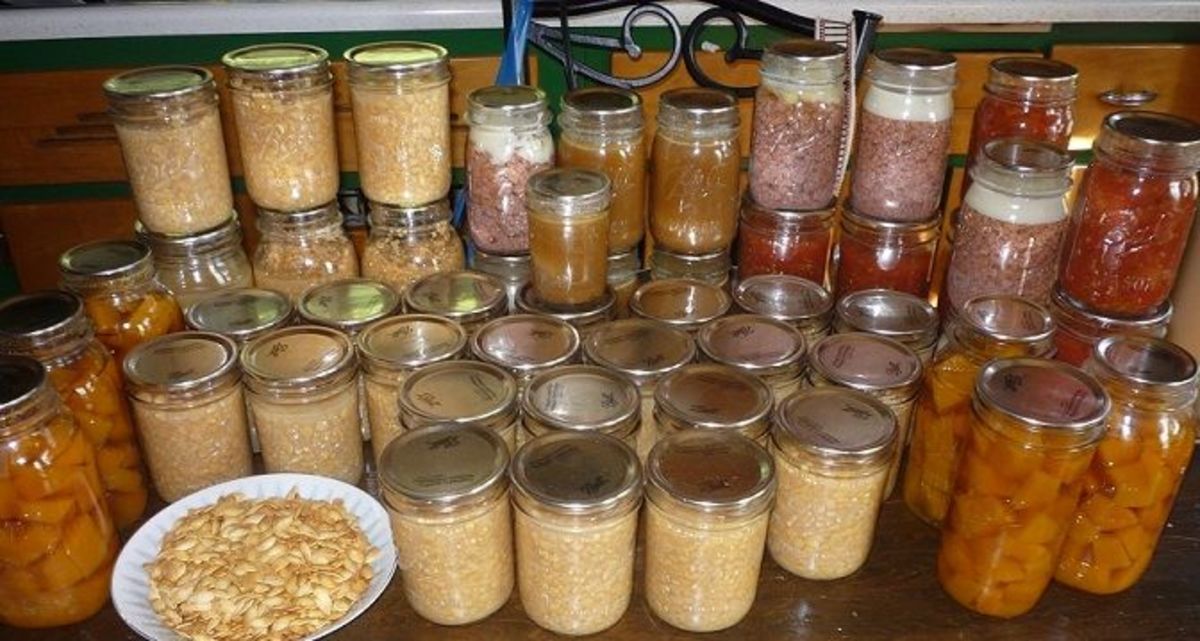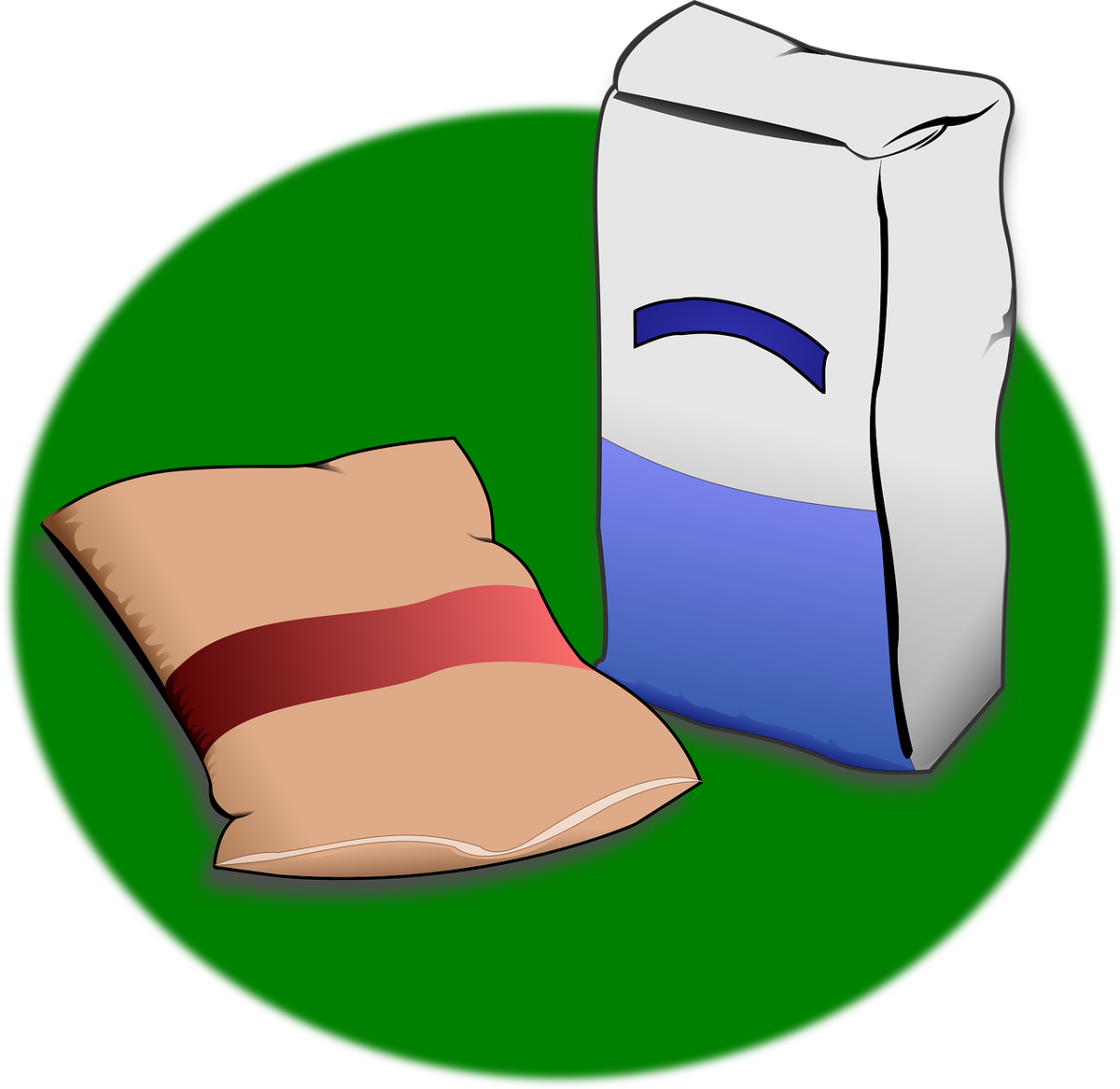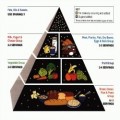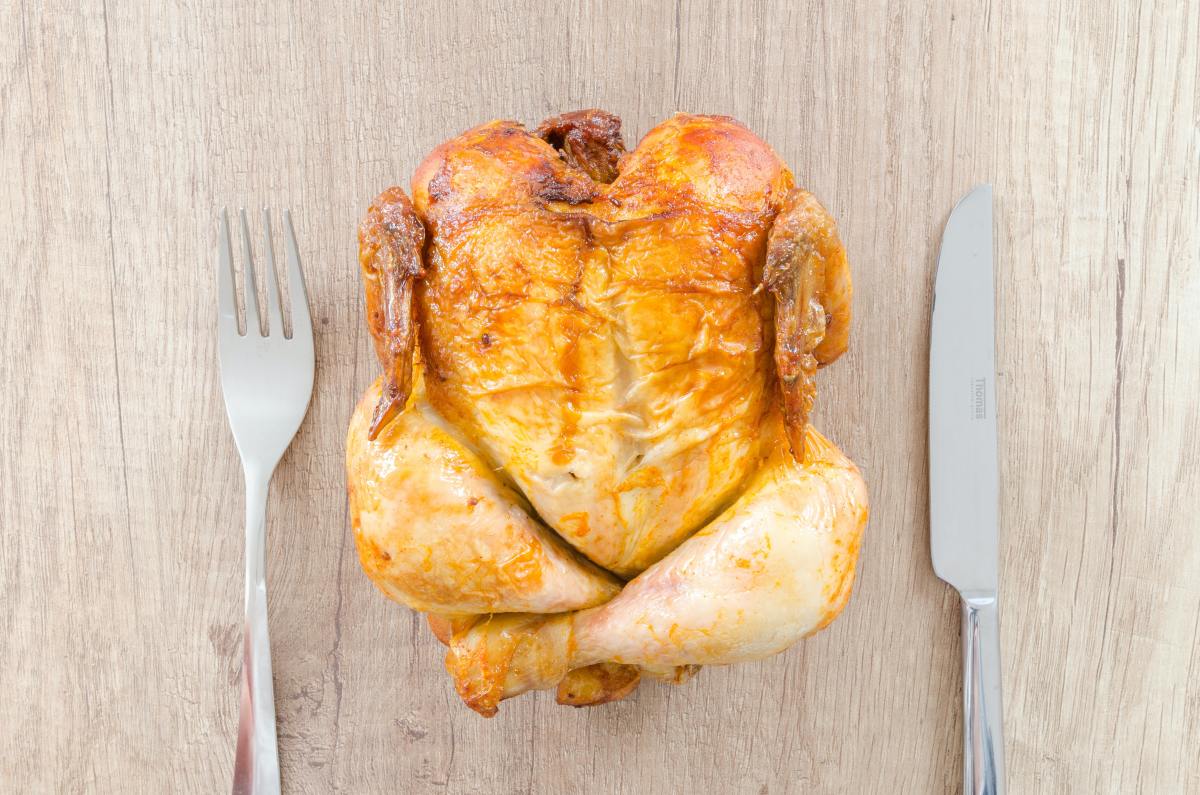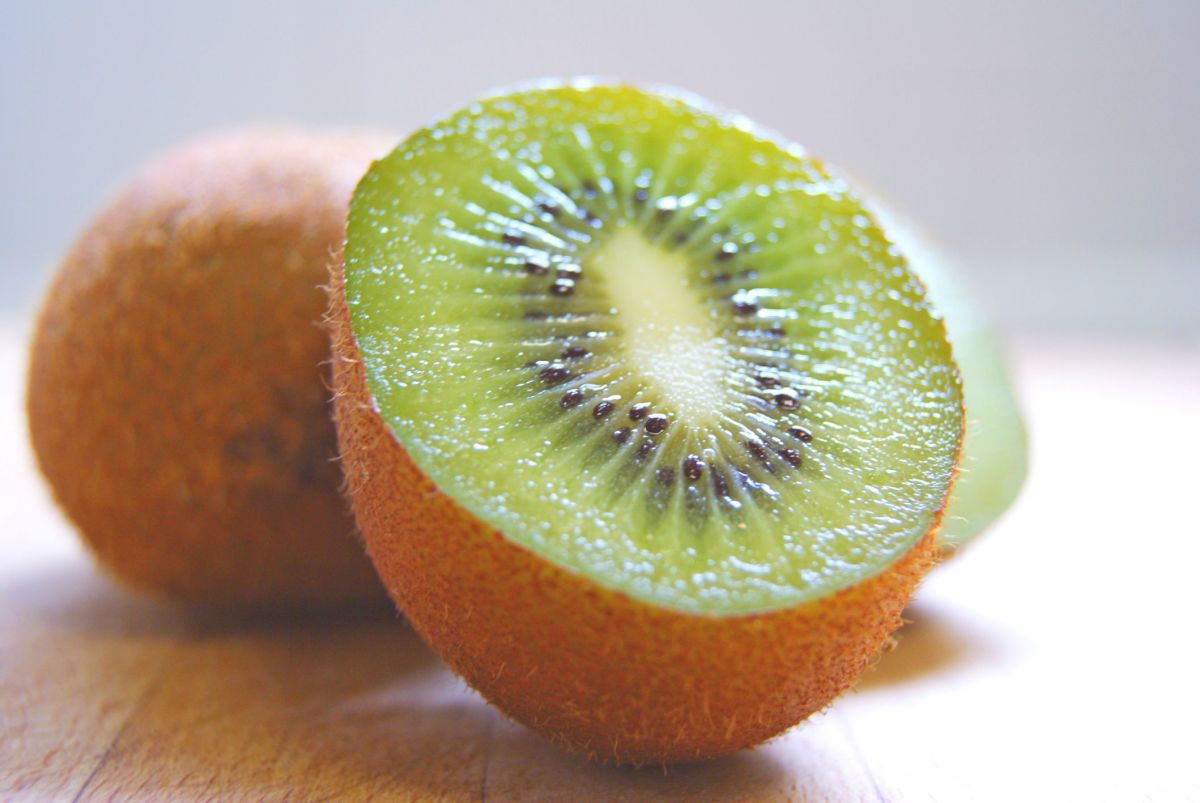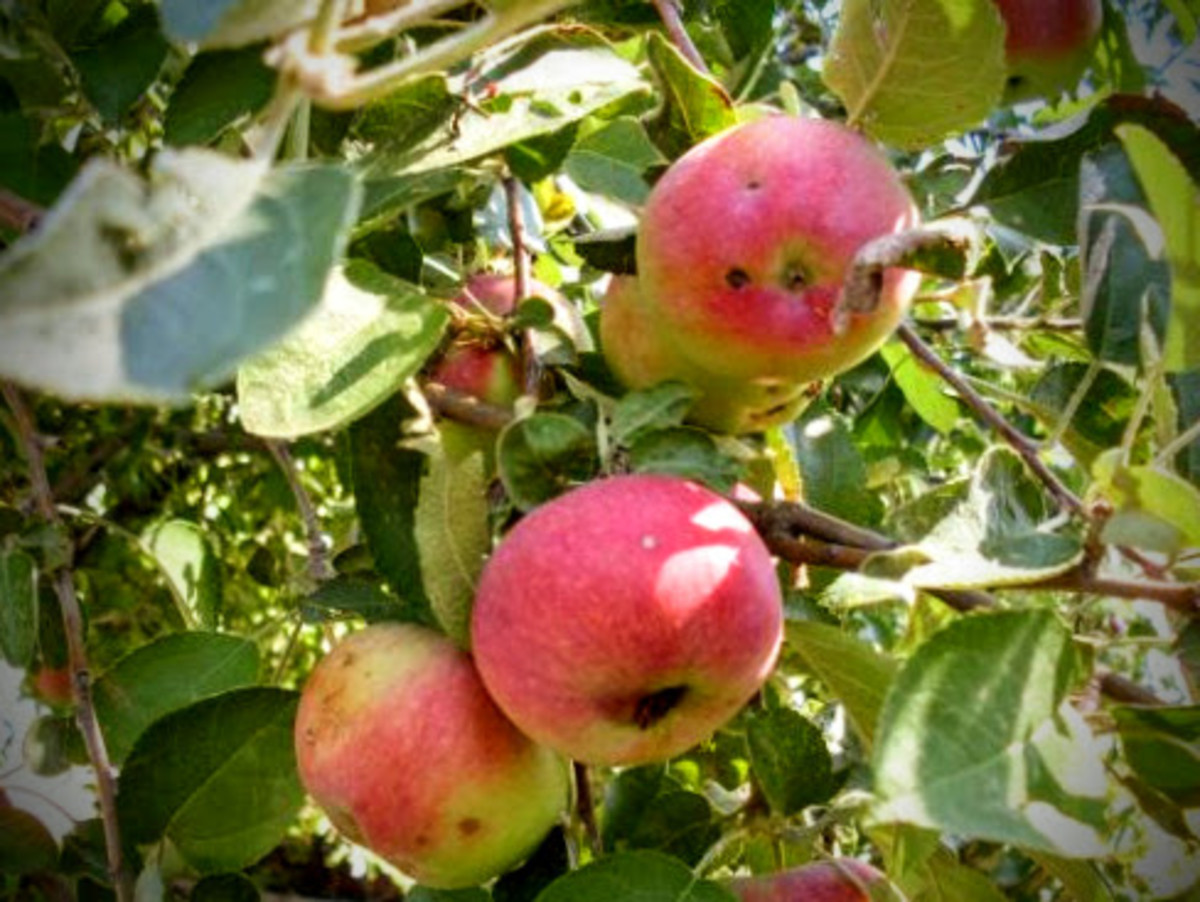How to Preserve Food
Peaches
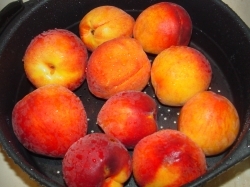
Food Preservation 101
To freeze, dry or can... that is the question. Food preservation, taking food harvested during the warmer seasons and storing it to use during the cold weather seasons is an art. There are many factors to consider when preserving food.
Does it consume energy to preserve the food? Canning and dehydrating require energy to preserve the food, but once preserved the food can be stored without energy. This makes it more feasible for traveling and survival stock up.
Does it consume energy to store the food? Freezing does not require an special appliance to preserve the food on the day of preservation. However, after it is placed in the freezer, it requires continual energy to maintain the stored food. A power outage could ruin the entire seasons harvest.
How does preservation effect the nutritional value of my food? Freezing has the least affect on nutritional value. In fact, some studies show that when the food is thawed there is little to no difference in the nutritional make up than before it was frozen. Dehydrated food is next in line for nutritional superiority. Foods dried at lower temperature have more nutritional value than foods dried at higher temperatures.
Do I have the equipment needed to use that method of food preservation? If you do not own a canner or a dehydrator, then maybe you have a freezer with some extra shelf space. Some people are surprised to find that a water canner really isn't necessary as long as you have new lids and rings for your canning jars. All you need is a large stock pot to water can foods.
Freezing, Dehydrating, or Canning?
Dried Mangoes Being Re-hydrated
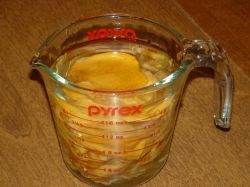
Deciding What Method to Use
Experience is a great teacher when it comes to preserving food. Over the years, I have learned that freezing foods with peels such as tomatoes and peaches has a wonderful outcome. When they are thawed their peels slide right off. When canning peaches or tomatoes, it is common practice to blanch these foods to remove the peel. Blanching requires dipping in hot water, followed by cold water, until the peel comes loose.
Another way to decide how to preserve foods is to look at what you already use. Do you love dried pears? If so, why not try preserving some from summer time in your dehydrator.
What Preservation Method Do You Use?
How do you preserve food?
Photos of How to Preserve Food
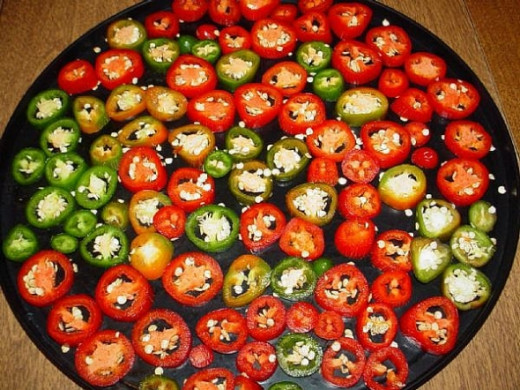
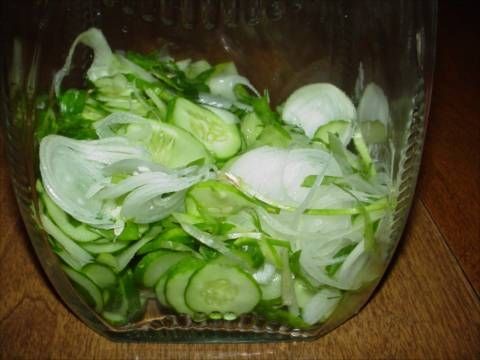
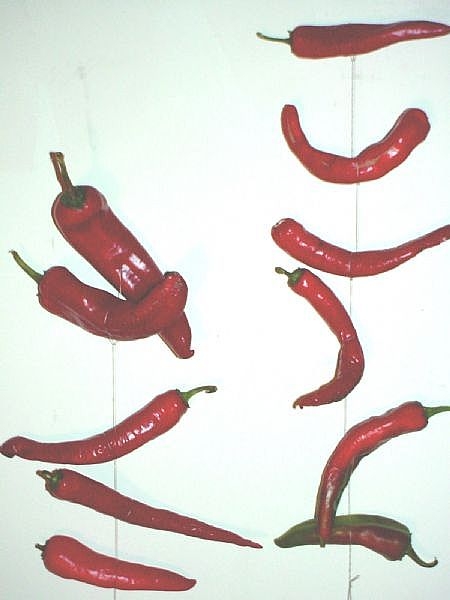
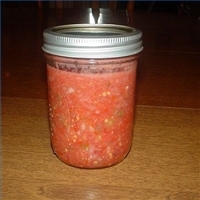
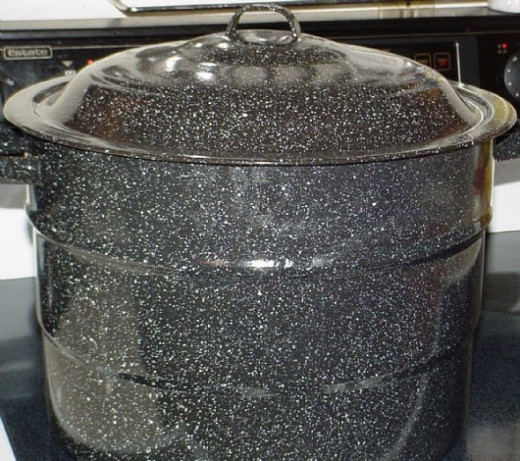
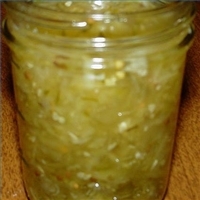
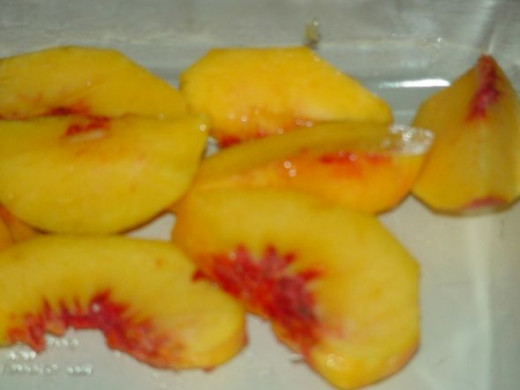
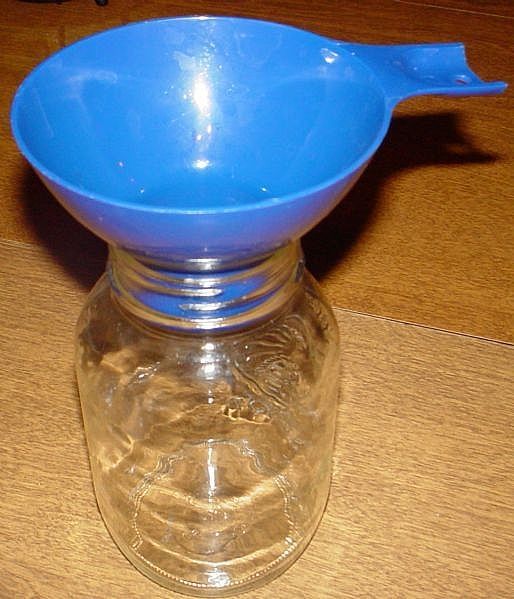
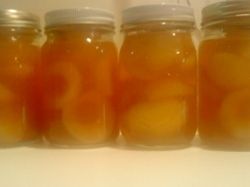
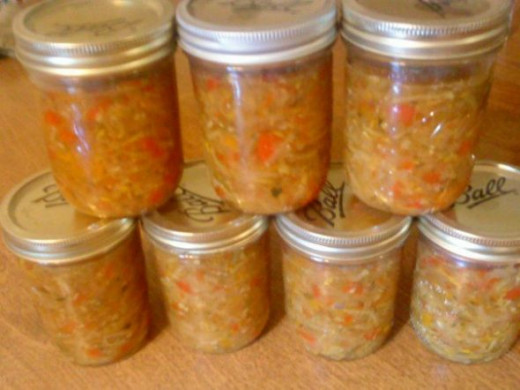
Canning Basics
The beauty of canning is that once it is done, you will have food available that requires no cooking and no upkeep to maintain the freshness. Canned food and dried foods are the ultimate survival foods, but canned food has some water content as well. Before you begin canning there are a few things you will want to know, such as which foods can be canned in water and which foods require pressure canning. Learn more below.
Free Home Canning Recipes
Home canning is a great way to preserve quality, locally grown food for later use. You may can fruits and vegetables from your own garden, or produce you've...
Water Bath Canning
Raw Food Cookies
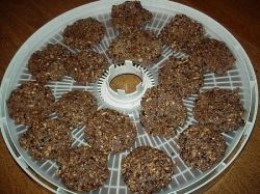
The Basics of Drying and Dehydrating Food at Home
If you are considering drying food as a preservation method, but haven't dried food before, you might be interested to know that there are several methods to drying. Air drying, a dehydrator and oven drying are just a few of the ways to adequately dry food. Learn more below.
How to Dry Food & Dehydrator Recipes
Dehydrated foods are a convenience because they travel well, are easy to store and always ready to be eaten. They do not need refrigerated after being dehyd...
Dehydrating Video
Blackberries for Freezing
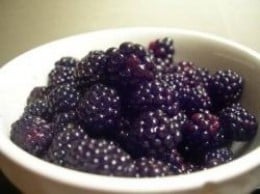
Freezing Food at Home
Frozen food requires some upkeep in that your freezer must continue to use electricity to maintain the food. However, there is a distinct advantage to freezing food for those that are health conscious. Frozen food is the most like fresh food in regard to nutritional content. In fact, frozen food properly stored and recently thawed looses very few nutrients. I find that fruit makes an excellent candidate for freezing, because it doesn't need to be thawed to be prepared as smoothies, which my children love! What an easy way to incorporate the daily fruit servings.
Advantages of Freezing Food: Freezing better preserves the nutritional value of food than canning or drying. Frozen food is more like fresh food in color, flavor...
Freezing Basics
© 2009 hsschulte

